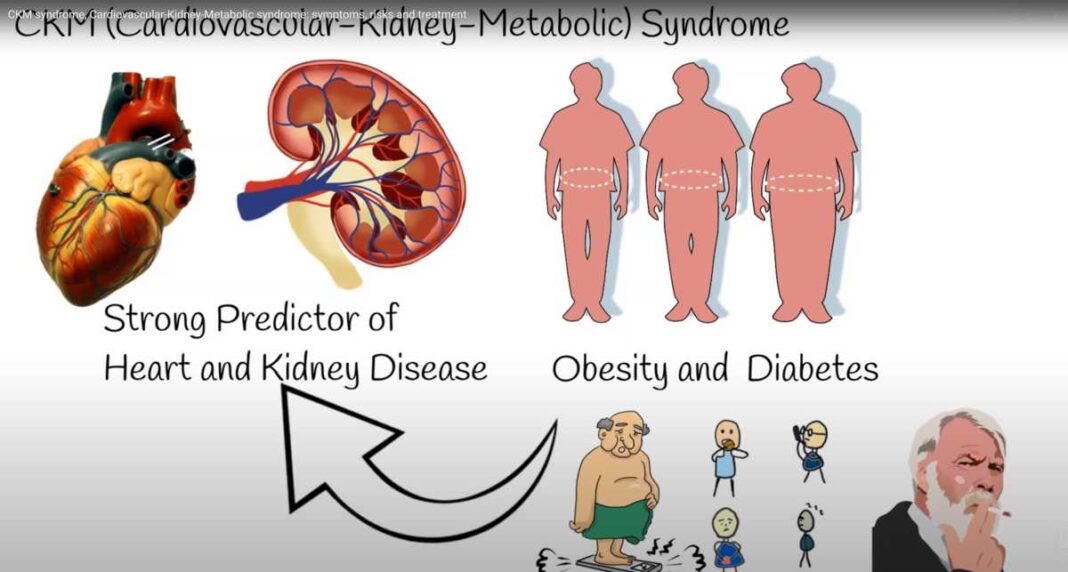Nearly every American adult has a health condition that could lead to heart failure, yet nine out of 10 have never even heard of it. Now, the American Heart Association (AHA) is sounding the alarm on cardiovascular-kidney-metabolic (CKM) syndrome, a newly defined cluster of interconnected diseases that doctors have been treating separately for decades.
The condition encompasses a cluster of interconnected conditions—including heart disease, kidney disease, diabetes, and obesity—that often occur together, significantly increasing the risk of heart attack, stroke, and heart failure. It was first defined in a 2023 AHA Presidential Advisory. Despite affecting roughly 90 percent of U.S. adults, few people have heard of it, according to a recent AHA survey.
In early 2026, the AHA will release its first-ever clinical guidelines on the syndrome to help health care providers better identify and treat this widespread condition.
Study Reveals Widespread Prevalence of CKM Syndrome in U.S. Adults
“It’s really common to have risk factors for heart, kidney, and metabolic disease [like diabetes] at the same time, and they’re interconnected,” Dr. Stacey E. Rosen, national volunteer president of the American Heart Association, told The Epoch Times.
The problem, Rosen noted, is that care for people with multiple conditions is often fractured, with various specialists and primary care clinicians working in silos. Through the AHA’s CKM Health Initiative, the association aims to help doctors work together and treat cardiovascular, kidney, and metabolic risk factors together, because that’s how patients experience them, she said.
The Numbers Behind the Problem
A comprehensive analysis of U.S. adults based on data from the National Health and Nutrition Examination Survey spanning 2011 to 2020 showed that nearly 90 percent of adults had signs indicating early stages of CKM syndrome. They carried risk factors such as high blood pressure, obesity, or problems controlling blood sugar.
About 15 percent of adults were classified as having advanced stages, which include having blood vessel damage or kidney disease. Older adults—particularly those aged 65 and older—were most affected, with more than 55 percent classified as having advanced stages.
The study found that the prevalence of CKM syndrome remained steady over the decade, with no significant improvements in reducing the overall burden of disease. Even younger adults aged 20 to 44 showed notable risk, especially among black adults and men, who were more likely to be in higher stages of CKM syndrome.








